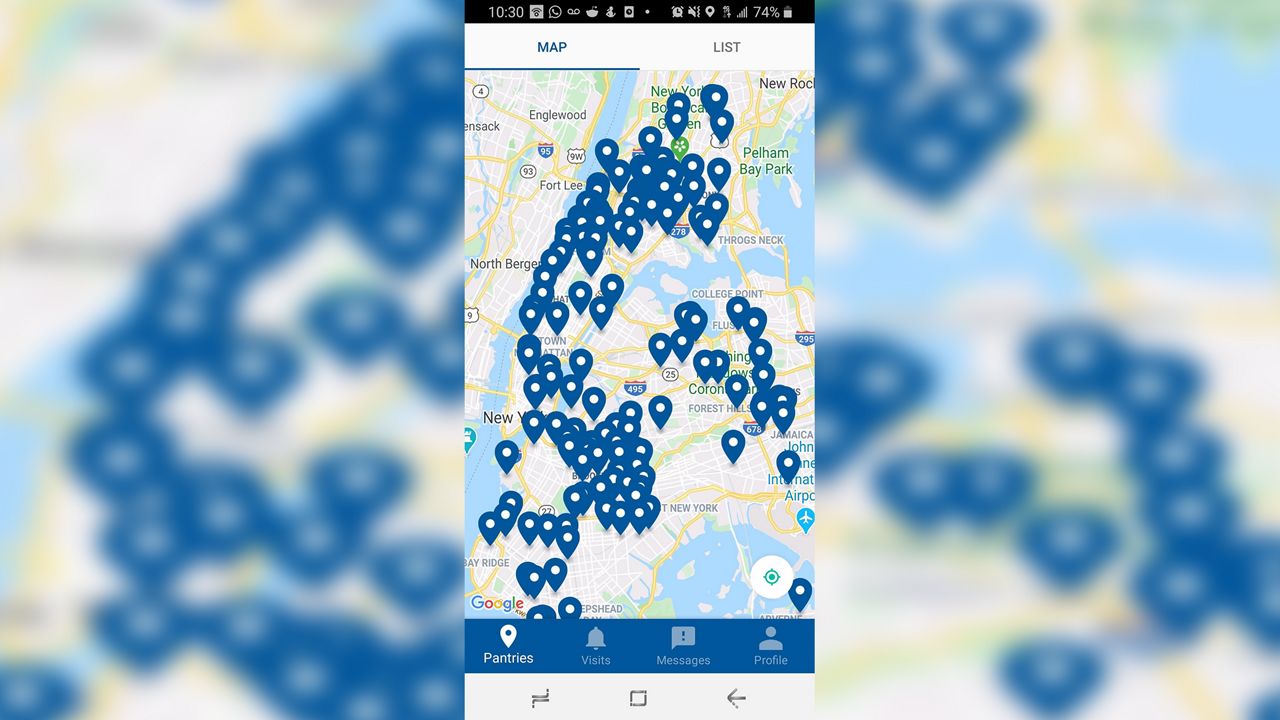On the average day, 1.4 million New Yorkers rely on emergency food programs like food pantries or soup kitchens for basic sustenance. 339,000 of them are children. That's one in five of the city's kids.
Sheena Wright deals with those numbers every day. She is the president and CEO of United Way New York City, a nonprofit that supports more than 380 emergency food programs.
"We have 700 soup kitchens and food pantries here," she said. "There was a supply gap of 20% between what we needed and what we had."
So there was already an overwhelming need. Then came coronavirus.
"40% of New York City households did not make enough money to make ends meet," Wright says. "Food is the first thing people will do without. Those number will go through the roof. We already had an emergency food network that wasn’t able to meet the demand. Now it’s being crippled."
The coronavirus pandemic changed the need, and United Way had to change the way they met it, putting a stronger emphasis on an app they developed along with City Harvest in 2016. It's called "Plentiful," and it connects people in need of emergency food assistance with the pantries and soup kitchens that are nearby and open. Clients can check the app to find a food center, and perhaps more importantly in these times, they can make an appointment to come in to pick up their groceries or have a meal.
"The soup kitchens said one big problem was that people are waiting in line for up to four hours," says Wright. She says the app has "reduced the wait time from hours to minutes. It's tremendous for clients, especially now. If they can make an appointment, there are no long lines, no congregating. It also lets pantries know how much food they need to have on hand."
It also gives emergency food providers much-needed information, helping to identify clients by culture and food preferences. Because of that, the Plentiful app is now available in nine languages.
There are, of course, other obstacles being faced by providers. One of them is staffing.
"Most of our workforce are volunteers," Wright says, "and they're not there. Many of our volunteers are seniors, and we’re concerned about their health."
In the end, it doesn't matter how many volunteers keep the pantries open, or how well you connect with people in need, if there's no stock on the shelves. Wright says there's food available, but it has to be purchased.
"We're trying to raise money to stock the shelves," she says. "And we need supplies like hand sanitizer and masks. The volunteers need them and the clients need them."
So United Way New York City started the COVID-19 Community Fund, designed to buy lifesaving food and supplies, and more.
"We're raising money to feed many low-income children who are not getting meals from schools and to shore up community-based organizations that are always operating on a shoestring to make sure they will always be here," Wright says.
The fund will also provide books to children, now isolated in low-income homes.
"50% of low-income families don't have books at home," Wright says. "There's already a disparity around learning in the city, so we have to do that as well."
If you’d like to contribute to the COVID-19 Community Fund, go to UnitedWayNYC.org/covid19.
Wright says to remember the volunteers and operators of these emergency food programs, out there working despite the risk to their own health.
"They need to be called out as the heroes they are," she says. "We are grateful for them. They are still out there grinding, doing the hard work."



